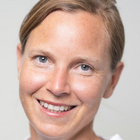A new strategic approach
How the new German government could shape European development policy
Koch, Svea / Aline BurniThe Current Column (2021)
Bonn: German Development Institute / Deutsches Institut für Entwicklungspolitik (DIE), The Current Column of 6 December 2021
After weeks of speculation, the German ‘traffic light’ coalition has published its coalition agreement, in which it outlines how it aims to promote global development. It is good news that the agreement points to an increased global engagement of Germany, commitment to strengthening the European Union and its role in the world, more coherent external engagement, as well as the maintenance and prospective increase of development spending. The three-party coalition of the Social Democrats (SPD), the Green Party and the Free Democratic Party (FDP) is expected to be strongly pro-European and has signalled this through promises to promote changes in the EU treaties, to reform the EU External Action Service, and the asylum system. However, while there is an overall emphasis on ‘more Europe’ in external relations, concrete measures to achieve this goal remain vague and will have to be defined by the incoming ministers. The new minister for Economic Cooperation and Development (BMZ) enters office at a moment in which subsequent crises have led Germany and the EU to deviate from a coherent and strategic approach, instead turning development policy into a “jack of all trades” policy with the EU’s and member state’s own interests at the heart of it.
Having been more or less stuck in crisis mode for over a decade, the EU’s implicit development policy imperative has mostly been “choosing not to choose”. Instead, EU development policy is tasked with addressing a broad spectrum of issues ranging from unmanaged migration, violent conflict, corruption and political repression alongside its “traditional” objectives of fighting poverty, inequality, weak governance, climate change and environmental degradation. The COVID-19 pandemic has only added to this complexity by requiring both immediate short-term health and economic responses and long-term recovery efforts that steer the world towards the 1.5-degree Celsius path of the Paris Agreement.
Since the start of the pandemic, the EU has mobilised and bundled resources from EU institutions, member states and investment banks together to provide a joint international European response against COVID-19 under the label ‘Team Europe’. The Team Europe approach is positively assessed in Brussels and European capitals as one that shows unity, increases European visibility and demonstrates strength in geopolitical battles with other global powers. Unlike previous initiatives for stronger co-ordination, member states are open to Team Europe as they benefit from a vast diplomatic and foreign service network, and get the opportunity to contribute – according to their own weight – to common initiatives in specific areas they have an interest in without having to grant more power or competence to Brussels. Yet, despite this enthusiasm, there is less unity on a strategic level and the EU’s development policy has not yet become more than the sum of its fragmented parts.
The EU and the member states are clear about their intention to promote their own geopolitical, economic and security interests through development policy and to take their own priorities as a starting point in engaging with their partners. The European Green Deal and the EU’s ambition to become carbon neutral by 2050 have also moved to the centre of the EU’s engagement with its partners as it seeks to convince them to follow a sustainable recovery trajectory similar to its own. However, adding priorities to development policy does not automatically lead to a coherent approach, and to achieving envisioned objectives. It mainly reflects the different interests of European governments, political parties and interest groups. This also explains the growing skepticism and tensions with, in particular, African countries and the African Union who see the EU as imposing its own agenda while neglecting their own ideas and priorities for addressing short- and long-term recovery and in this process, social and ecological objectives.
The new Federal Minister for Economic Cooperation and Development Svenja Schulze is expected to realise soon that she not only needs to define her own strategic choices and development priorities, but that she ought to integrate the European perspective from the outset. As the largest contributing member state to the EU's development budget, Germany needs to use its weight to push strategic debates and rally member states behind common European initiatives. While further integration in the field of development policy seems like a distant aim given the strong national interests of member states, Germany can play a vital role in not only increasing Europe’s visibility but also providing more substance to ‘Team Europe’. Two objectives should be at the heart of a strategic vision for a European approach to development cooperation. One, the integration of social and ecological objectives (and by this the full coherence with the SDGs and the Paris Agreement). Two, the promotion of democratic values. This approach should not only join up existing policy initiatives, but be formulated in a way that both promotes and strengthens developing country ownership.


